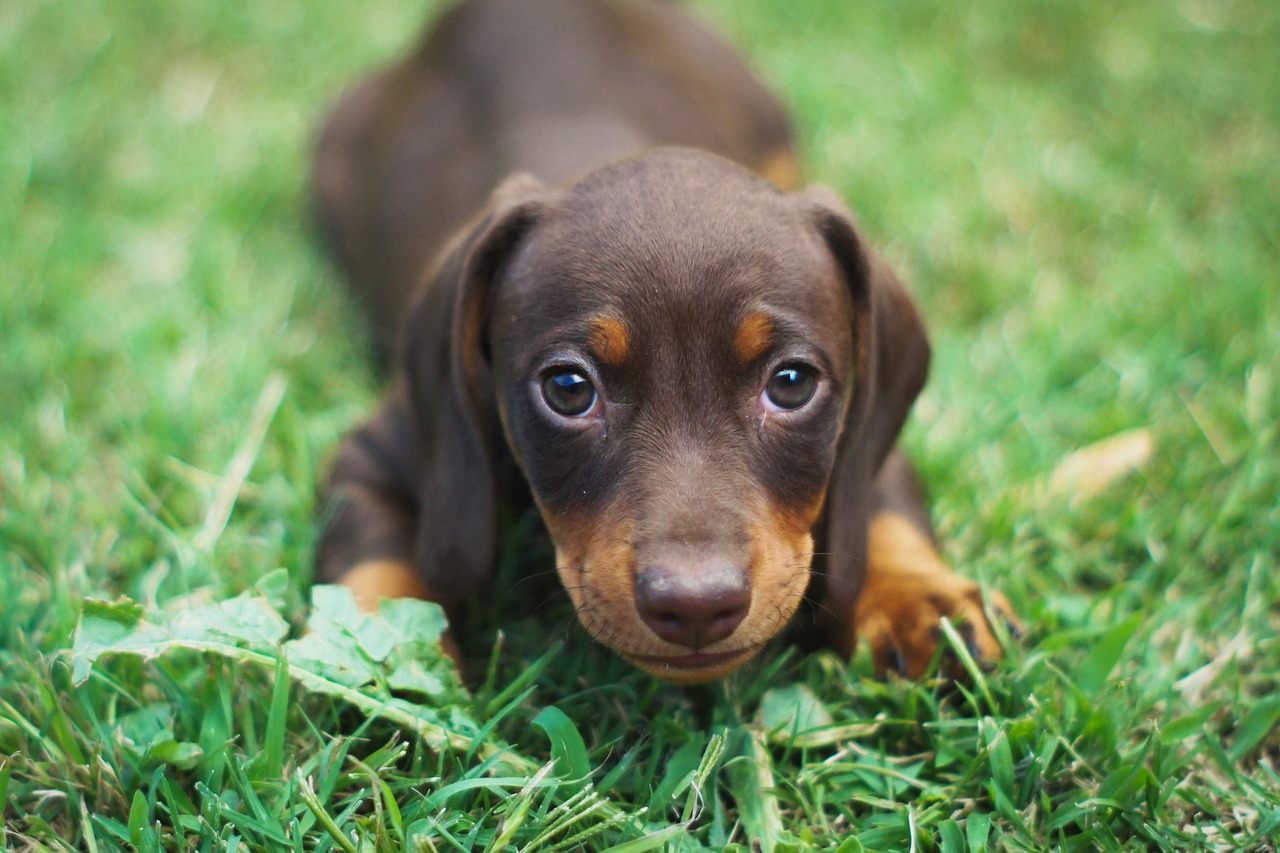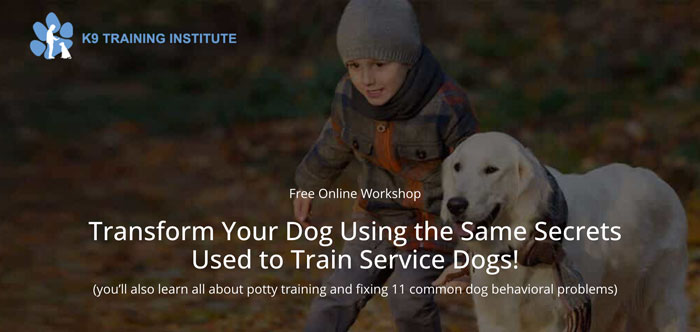Dachshunds, with their spirited and sometimes stubborn nature, have unique socialization needs. These little dogs, originally bred for hunting, can be brave, intelligent, and at times, wary of strangers. Proper socialization for a Dachshund puppy is essential to ensure they grow up to be well-balanced and confident adults.
The Right Ways to Socialize a Dachshund Puppy
 1. Begin at an Early Age:
1. Begin at an Early Age:
- It’s best to start socializing your Dachshund puppy between 8-12 weeks of age.
- The window for primary socialization closes around 14-16 weeks, making it crucial to introduce your Dachshund puppy to a variety of experiences during this period.
2. Positive Reinforcements are Key:
- Use treats, toys, or praise to reward your Dachshund puppy when they have a new experience.
- The goal is to make every new situation a positive encounter, building their confidence.
3. Expose to a Variety of People:
- Dachshunds can be cautious around strangers. Ensure they meet different people, from children to seniors.
- Encourage calm and gentle interactions, allowing your Dachshund puppy to approach at their own pace.
4. Gentle Handling:
- Frequently touch your Dachshund puppy’s paws, ears, tail, and mouth. This will prepare them for future grooming and vet visits.
- Reward calm behavior and be especially gentle, given the Dachshund’s delicate spine.
5. Organize Playdates:
- Socializing with other vaccinated puppies helps your Dachshund puppy learn proper canine manners.
- Monitor play closely, ensuring larger dogs don’t play too roughly given the Dachshund’s size and vulnerability to back injuries.
6. Introduce Various Environments:
- Dachshunds are curious by nature. Take them to different settings like parks, city streets, and quiet neighborhoods.
- Ensure these outings are positive to prevent the development of fears or phobias.
7. Familiarize with Various Sounds:
- At home, play recordings of different noises, such as storms, sirens, and children playing.
- This will help desensitize your Dachshund puppy, ensuring they remain calm in various situations.
8. Meet Other Animals:
- Introduce your Dachshund puppy to other animals, keeping in mind their hunting instincts.
- Supervised and calm introductions to animals like cats can help ensure they coexist peacefully.
9. Safe Car Rides:
- Get your Dachshund puppy used to car journeys by starting with short trips.
- Always prioritize safety by using a secure carrier or harness.
10. Avoid Overwhelming Situations:
- If a situation seems too intense for your Dachshund puppy, it’s okay to remove them and try again later.
- It’s better to have slow, positive progress than to rush and create negative associations.
11. Attend Puppy Socialization Classes:
- Such classes offer a controlled environment for your Dachshund puppy to learn and interact.
- It provides an opportunity for them to meet other puppies and encounter new experiences.
12. Use Caution at Dog Parks:
- Given the Dachshund’s small size, always be cautious about interactions with larger dogs.
- It’s best to wait until they’re older and have basic obedience skills before frequenting dog parks.
13. Be Present and Observant:
- Always supervise socialization sessions closely.
- Your guidance ensures that your Dachshund puppy’s experiences are positive and safe.
14. Stay Calm and Lead by Example:
- Dachshunds are sensitive to their owner’s emotions. A calm demeanor helps them feel secure during new experiences.
- Your confidence will encourage your Dachshund puppy to explore with assurance.
15. Enroll in a Puppy Obedience Training Program:
- Structured training complements socialization by instilling good behaviors and reinforcing commands.
- This step is essential for breeds like Dachshunds that have an independent streak.
- For effective and comprehensive training, consider SpiritDog’s Ultimate Puppy Training Program or the K9 Training Institute’s Dog Masterclass. Both are excellent resources to guide you and your Dachshund puppy on a successful training journey.
The Wrong Ways to Socialize a Dachshund Puppy
 Properly socializing a Dachshund puppy is crucial for their development, ensuring they grow up confident and well-adjusted. Given their unique temperament, it’s essential to be particularly sensitive to their needs. Mistakes in the socialization process can lead to fear, anxiety, or aggression in your Dachshund puppy. Here’s what NOT to do:
Properly socializing a Dachshund puppy is crucial for their development, ensuring they grow up confident and well-adjusted. Given their unique temperament, it’s essential to be particularly sensitive to their needs. Mistakes in the socialization process can lead to fear, anxiety, or aggression in your Dachshund puppy. Here’s what NOT to do:
1. Late Start with Socialization:
- Delaying the socialization process can close the window of prime opportunity.
- Always start socializing your Dachshund puppy between 8-12 weeks of age.
2. Overwhelming the Dachshund Puppy:
- Avoid exposing the Dachshund puppy to too many new experiences in a brief period.
- An overwhelmed puppy can become anxious, which might lead to fear in similar situations in the future.
3. Forcing Interactions:
- Never push your Dachshund puppy into situations where they are visibly uncomfortable.
- Forcing interactions can backfire, leading to reinforced fears or aggressive responses.
4. Ignoring Signs of Stress:
- Overlooking signs of discomfort or stress in your Dachshund puppy can be detrimental.
- Common signs include lip licking, yawning, pinned back ears, tail tucked, or attempting to move away.
5. Relying Solely on Dog Parks:
- Using dog parks as the primary method for socialization can expose your Dachshund puppy to unpredictable behavior.
- Larger, overly enthusiastic dogs can inadvertently harm them or create negative associations.
6. Not Introducing Varied Human Interaction:
- Exposing your Dachshund puppy only to a limited group can make them wary of unfamiliar people.
- They should meet a diverse group, including children, the elderly, and people wearing uniforms or hats, for instance.
7. Neglecting Positive Reinforcement:
- Skipping rewards and focusing only on corrective measures can form negative associations.
- Always use treats, praise, or toys to reinforce positive behavior and experiences.
8. Inconsistent Socialization Efforts:
- Intermittent and sporadic exposures can confuse your Dachshund puppy.
- Consistency is key, to ensuring regular and varied socialization experiences.
9. Overprotecting the Dachshund Puppy:
- Being overly protective can prevent your Dachshund puppy from learning coping mechanisms.
- While safety is paramount, they also need to learn how to navigate minor challenges.
10. Skipping Exposure to Different Environments:
- Only exposing your Dachshund puppy to familiar surroundings can hinder their adaptability.
- Diverse environments, such as crowded areas, open spaces, and different terrains, are essential for a well-rounded puppy.
11. Failing to Desensitize to Handling:
- Not getting your Dachshund puppy used to touch can lead to resistance during grooming or vet visits.
- Regularly and gently handling their ears, paws, and mouth helps them become more comfortable over time.
12. Avoiding Exposure to Sounds and Sensations:
- Shielding your Dachshund puppy from every unfamiliar sound can make them more reactive later on.
- Use recordings of various noises to gradually desensitize them in a controlled environment.
13. Not Setting Clear Boundaries:
- Socialization isn’t just about exposure; it also includes teaching appropriate behavior.
- Without clear boundaries, your Dachshund puppy might develop undesirable habits.
14. Failing to Monitor Play Sessions:
- Not observing playtimes, especially with larger breeds, can expose your Dachshund puppy to risks.
- Their elongated spine makes them prone to injuries, so always ensure play is gentle and safe.
15. Neglecting Structured Training Classes:
- Assuming socialization is solely about exposure can deprive your Dachshund puppy of structured interaction benefits.
- Training classes teach them to interact appropriately with other dogs and follow commands in a distracting environment.
Consider Online Dog Training for Your Dachshund Puppy
Our 2 favorite online courses are:
1. SpiritDog’s “Perfect Obedience” Course
The Perfect Dog Obedience Bundle is an online dog training program designed to help dog owners achieve well-behaved pets. The comprehensive course covers basic obedience, loose leash walking, and includes bonus mini-courses on training habits and rewards, stopping jumping, and separation anxiety solutions. With lifetime access to expert trainers for personalized feedback and a 60-day money-back guarantee, this course aims to provide effective, accessible training for a variety of dog behavior issues.
2. K9 Training Institute’s “Dog Masterclass”
More than just an obedience course, this more comprehensive training course tackles any behavior problem you might face with your dog.
In conclusion, while socializing a Dachshund puppy is vital, the manner in which it’s done plays a significant role in shaping their temperament. Avoiding the pitfalls mentioned above can help your Dachshund puppy grow into a balanced, confident, and friendly adult. Remember, it’s not just about quantity, but the quality of socialization experiences that matter most.


 Toledo, United States.
Toledo, United States.